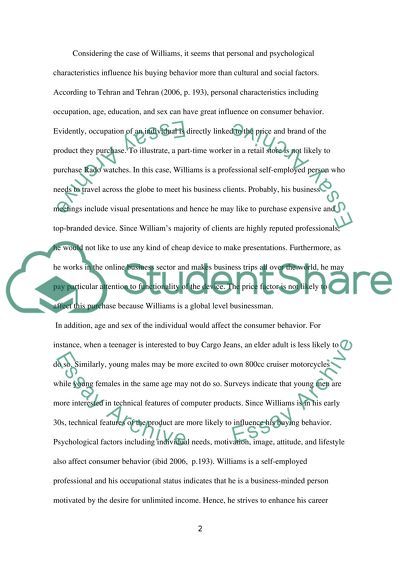Cite this document
(“Consumer Decision Making Process Assignment Example | Topics and Well Written Essays - 2000 words”, n.d.)
Consumer Decision Making Process Assignment Example | Topics and Well Written Essays - 2000 words. Retrieved from https://studentshare.org/marketing/1469323-buyer-behaviour-the-consumer-decisionmaking
Consumer Decision Making Process Assignment Example | Topics and Well Written Essays - 2000 words. Retrieved from https://studentshare.org/marketing/1469323-buyer-behaviour-the-consumer-decisionmaking
(Consumer Decision Making Process Assignment Example | Topics and Well Written Essays - 2000 Words)
Consumer Decision Making Process Assignment Example | Topics and Well Written Essays - 2000 Words. https://studentshare.org/marketing/1469323-buyer-behaviour-the-consumer-decisionmaking.
Consumer Decision Making Process Assignment Example | Topics and Well Written Essays - 2000 Words. https://studentshare.org/marketing/1469323-buyer-behaviour-the-consumer-decisionmaking.
“Consumer Decision Making Process Assignment Example | Topics and Well Written Essays - 2000 Words”, n.d. https://studentshare.org/marketing/1469323-buyer-behaviour-the-consumer-decisionmaking.


